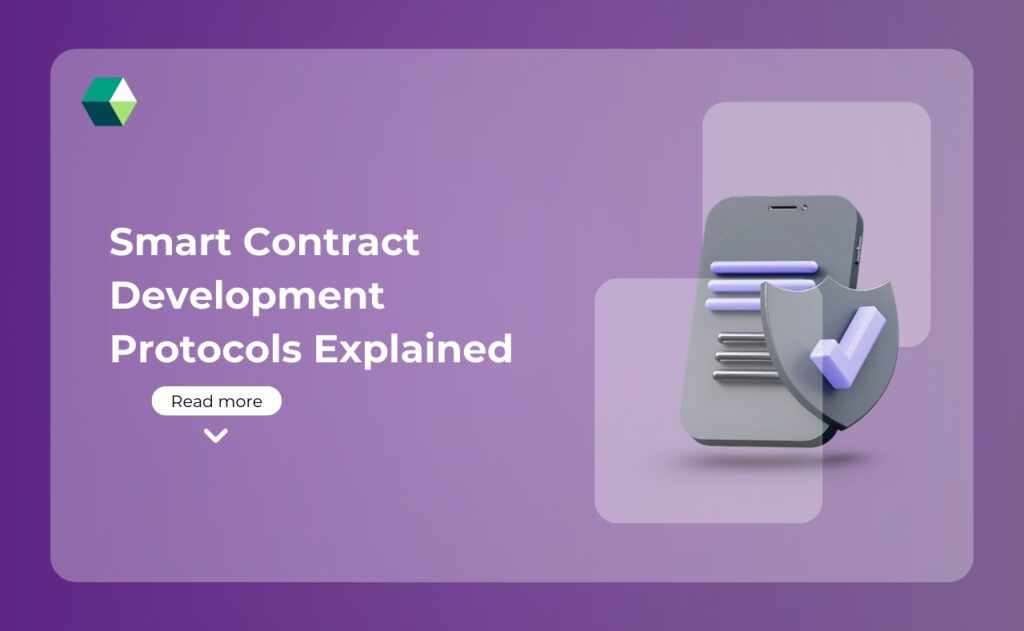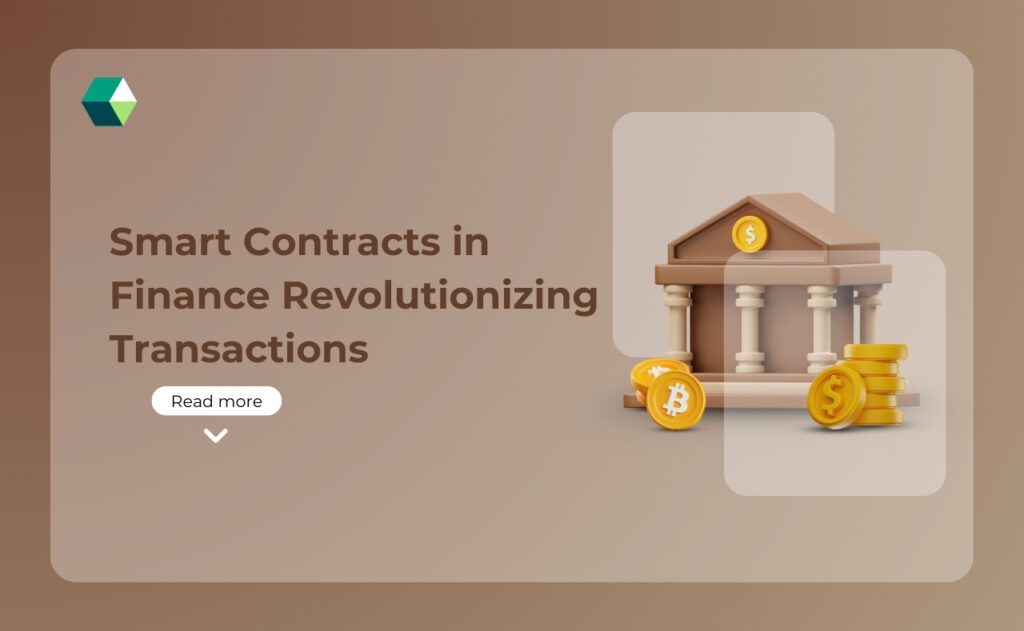
Smart contracts are the basis for and form the backbone of decentralized applications (dApp) where the maps of everything from decentralized finance (DeFi) to NFT marketplaces rely on the smart contract to power their features. Smart contracts or coded agreements execute or enforce a contract that are secure and transparent without the need for third parties that makes businesses more efficient. While this space is still evolving and growing, the need to understand the protocols that are the foundation for quick smart contract development is also evolving, as is the need to audit smart contracts for the secure design. In this blog, we will first go over the protocols that allow developers and businesses alike to utilize to create smart contracts, the importance of conducting audits on the smart contracts themselves, as well as how businesses can push for innovation while utilizing safe practices in the increasingly changing digital landscape.
What Are Smart Contracts?
Smart contracts are essentially code that runs on blockchain networks such as Ethereum, Binance Smart Chain, or Polygon. They execute actions when pre-established conditions are met, thus removing intermediaries. For instance-
- A lending protocol can automatically release collateral when a loan is paid back.
- An NFT marketplace can transfer digital ownership when a payment has been confirmed.
These contracts are being written in programming languages such as Solidity, Vyper or Rust, and depend on the protocol of the blockchain and related technology.
Popular Smart Contract Development Protocols
There are different blockchains that serve different purposes and methodology towards creating smart contracts.
-
Ethereum Protocols
Ethereum is the first true smart contract technology. Ethereum introduced some important standards including ERC standards, like ERC-20 (fungible tokens) and ERC-721 (NFTs). Developers will typically be writing code using Solidity.
Security is paramount in this domain, which is part of the reason many companies utilize a professional smart contract audit company in Ethereum to audit their code. The audit will identify the vulnerabilities in their code to ensure their smart contract will not be hacked or lose assets or functionality.
-
Binance Smart Chain (BSC)
BSC has admitted advantages in terms of speed and cost compared to Ethereum for transactions. BSC accepts the Ethereum Virtual Machine or essentially allows smart contracts written in Solidity can be deployed without rewriting the contracts.
-
Solana Protocols
Solana utilizes Rust and C. Solana is distinguished by its ability to process high throughput transactions consistently. Solana is preferred by many developers building DeFi protocols or NFT marketplaces today due to its inherent scalability benefits.
-
Polkadot and substrate
Polkadot allows developers to develop customizable blockchains, or parachains, and perform a number of customization features using the substrate framework on hearth.
-
Polygon (Matic)
Polygon operates as a layer-2 scaling solution that offers reduced transaction prices and quicker transaction speeds. Polygon has also become a more commonly used chain for DeFi transactions especially in projects that desire decentralization and cost savings.
Why Smart Contract Security Matters
Due to blockchain’s decentralized nature, once a contract makes its operation live, you can no longer modify it. People view this immutability as one of the reasons to adhere to smart contract security best practices. One valuable takeaway can lead to millions in losses, as we’ve seen in some of the more famous DeFi hacks and losses people suffered.
We don’t need to get into why we would use smart contract audit services in India or around the world, it makes sense. The audit service will consist of the following-
- Automated code checks using automated tools for checking code.
- Manual code check by experienced security personnel.
- Simulated attack on the contract to assess vulnerabilities.
- Finally, an audit report with recommendations and findings.
Understanding Smart Contract Audit Costs
When firms are contemplating a deployment of contracts, the first question they typically have is about the smart contract audit price. The price depends on a number of factors:
Complexity of the code: A simple ERC-20 token contract will cost much less to audit than a complex DeFi lending protocol.
- More lines of code– Mean more Smart Contract audit costs.
- Urgency of the delivery– A fast-tracked audit will usually come at a higher cost.
- Reputation of the firm– A widely recognized smart contract audit firm may charge more because they have published reports tracking critical issues.
Costs can range from a few thousand dollars, to tens of thousands of dollars, but none of those costs are anywhere near the cost of a security breach.
Solidity Smart Contract Audits
Because Ethereum is the prevailing force in the dApp realm, most contracts tend to be written in Solidity. An audit of a Solidity smart contract focuses on vulnerabilities that impact Solidity.
Typical vulnerabilities include-
- Re-entrancy attacks
- Integer overflows / underflows
- Gas limit problems
- Access control misconfigurations
Utilizing professionals helps guarantee Solidity-based protocols are practical and secure.
Ethereum Smart Contract Security Audits
Ethereum contracts contain billions of dollars in value through DeFi, NFTs, and DAOs. An Ethereum smart contract security audit is a specialized service that provides assurance against sophisticated attacks by securing these high-value contracts. Startups and enterprises entering the DeFi space will find the audit even more essential, as trust and transparency are guaranteed to be critical.
Career Opportunities in Smart Contract Security
As the adoption of blockchain technology continues to grow, so does the need for individuals who can secure smart contracts. People who work in smart contract security roles are one of the quickest-growing groups in the entire blockchain landscape. The roles could entail one of the following professional positions-
- Smart Contract Security Engineer– A smart contract security engineer focuses on finding and fixing weaknesses.
- Blockchain Security Analyst– This role tests systems for weaknesses, and recommendations on how to improve them.
- Audit Specialist- This role is employed at a smart contract audit company, where the audit specialist uses a firm’s scheduled reviews and certifies the protocols based on the results of the review for clients.
This establishes blockchain security as not only a necessity for business, but also a lucrative career for developers.
Smart Contract Security Best Practices
Whether you are a developer or entrepreneurial business owner, adhering to smart contract security best practices is pivotal to your success. Some essentials are-
- Simplicity in code- Simpler code leaves less room for mistakes.
- Peer reviews- Have multiple developers review your contracts.
- Battle-tested libraries- Don’t solve problems again; rely on well-regarded frameworks.
- Audits- Work with a well-regarded Ethereum smart contract auditing company or otherwise trusted firms
- Monitoring once deployed- Continuous monitoring is critical after audits to catch threats quickly.
The Future of Smart Contract Protocols
Smart contract development protocols will continue to evolve into the future. Layer-2 scaling solutions, zero-knowledge rollups, and cross-chain interoperability are likely to be paramount in the future of smart contracts. As businesses look for not only the development component but audits of smart contracts as well to secure their investments, comprehensive smart contract audit services will become more prevalent in India and internationally.The ecosystem from an audit perspective will evolve to stress security in a similar way that functionality is already stressed as part of development. Projects that conduct audits and address best practices will gain a competitive advantage in the marketplace.
Building Innovation with Security in Smart Contracts
Smart contracts are transforming industries, but with innovation comes accountability. It is imperative for companies entering the blockchain space to understand the protocols behind development and to invest in the proper audits. Whether understanding the smart contract audit cost, finding a smart contract audit firm, or implementing smart contract security practices, the key is to help protect projects from risk and better trust users.
- DEX Lending Platforms
- MLM Software Delhi
- MLM
- Go
- Rust
- Solidity
- Crypto Token
- Token Launch
- Polkadot Blockchain Development
- Polkadot JAM Chain
- Governance Proposal
- Governance Proposals in Web3
- Mining Pool
- DEX Lending
- Listing Platforms
- ICO listing services
- ICO Listing
- DeFi Aggregator
- Blockchain Technologies
- Metaverse Development
- Pre-Mined Tokens
- Supply chain
- Storage Platforms
- Decentralized Data Storage
- Decentralized Storage

 Blockchain
Blockchain  Apps & Game
Apps & Game  AI & ML
AI & ML  AR & VR
AR & VR  IOT Services
IOT Services  E-commerce
E-commerce  Frontend Developer
Frontend Developer  Backend Developers
Backend Developers  Game Developers
Game Developers  Ecommerce Developer
Ecommerce Developer  Dedicated Developers
Dedicated Developers 







